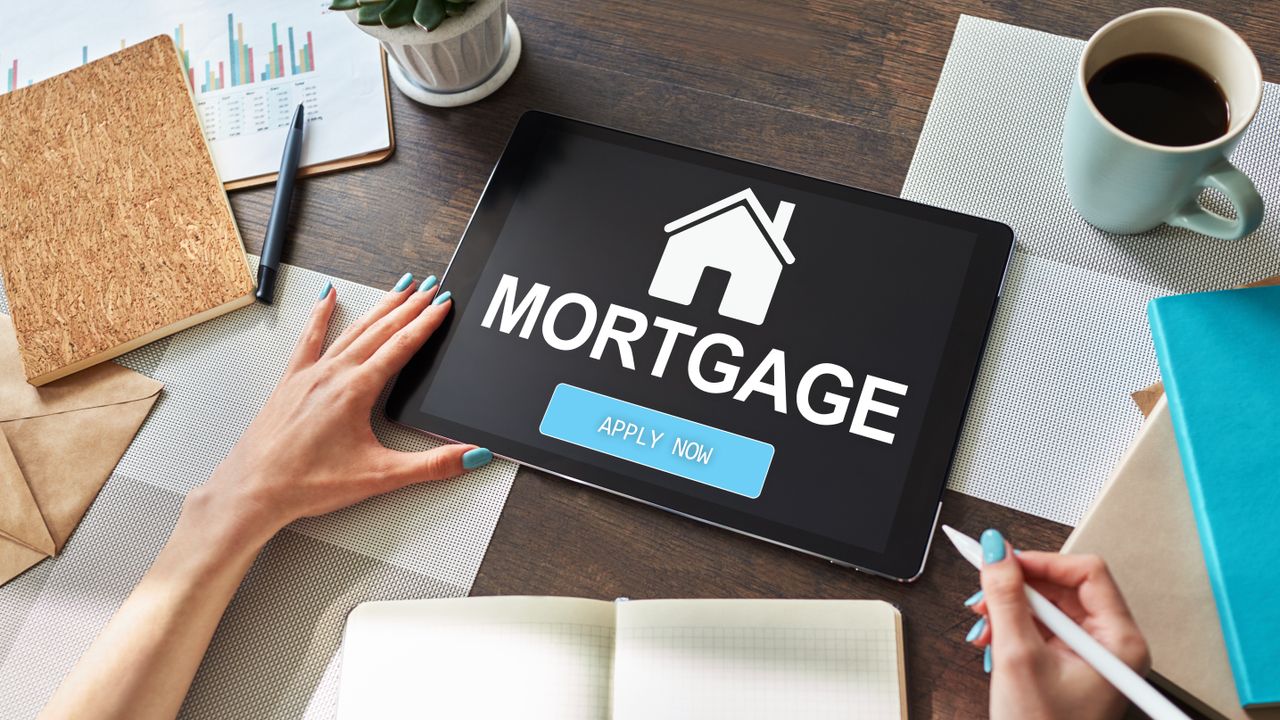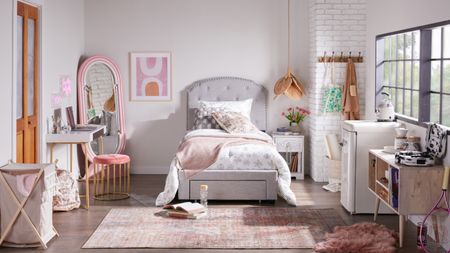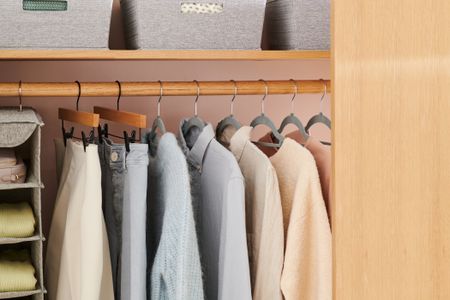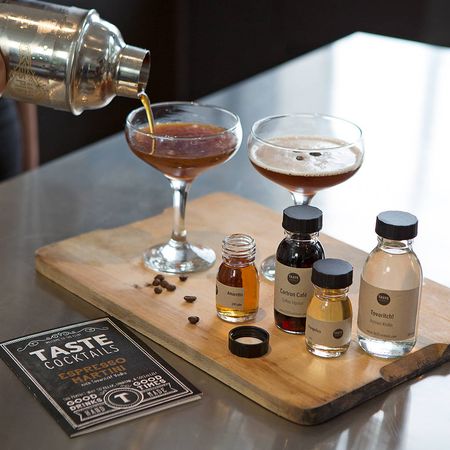
Learning how to find the best mortgage rates is essential to securing a mortgage deal that works best for you. While comparing interest rates is easy, there's a bit more to consider in order to make sure the overall rate of your loan is the best it can be – which is where this guide comes in. Getting a good mortgage rate is harder than ever as a result of the pandemic, and it's worth doing all the research you can to get the best mortgage rate for your circumstances. Here's how to do it.
To get started, use the online mortgage calculator form below to compare mortgages from a variety of lenders. Online mortgage expert Habito will engage in an online chat with you, advising you on the next stages, helping you assess affordability and give you impartial advice to ensure you get the best deal for you.
Then, read more of our advice to develop an in-depth understanding of mortgage rates.
Please note: Habito is an online mortgage broker and whole of market lender so they will assess the best deals available and work out which works for you. We have an affiliate relation with Habito and take a small percentage of commission for referring you to them.
Will 95-per-cent mortgages really come back?
You've probably heard of Boris Johnson's recent pledge to bring back 'fixed, long-term' mortgages with five-per-cent deposits. The truth is, no one knows how they will work in practice, that is which lenders will offer them, whether they'll have different (or even no) stress tests from other mortgages, and whether there'll be restrictions to which properties they can be used for. Watch this space for updates, but we don't expect that any new mortgage scheme will be put in place before we're well into 2021.
There currently are five-per-cent deposit mortgage deals available, but they are extremely limited – eight in total as of December 2020. So, while it's not technically impossible to get one, it's not easy, and the rates will not be great (over three per cent).
Mortgage rates with low deposit: are 10-per-cent mortgages coming back?
There is – finally – some hope for borrowers with small deposits, with several big lenders, including Lloyds, Nationwide, and the Yorkshire Building Society reintroducing 90-per-cent mortgage deals. This is a vast improvement on the dire situation a few months a go when most 90 LTV mortgages were pulled from the market.
The not-so-good news is that, although deals are being reintroduced, the mortgage rates for 90-per-cent loans are now double what they were pre-pandemic. There are no deals with a mortgage rate of under three per cent, with Platform offering the cheapest rate at 3.24 per cent, and most deals coming in at 3.69 per cent. This is a significant rise in interest rates that will affect first-time buyers with small deposits; there even are reports of five-per-cent rates offered by some lenders.
It is clear at this point that if you are at all able to put together a larger deposit, you should do so. You will have access to much better rates with a 15 per cent deposit.
If you do only have a small deposit, we strongly recommend considering a guarantor mortgage instead.
Getting the best mortgage rates in 2020: what you need to secure the best mortgage deals
To cut a long story short: prepare for more paperwork as watertight proof of your finances. Lenders are more nervous than ever before about people defaulting on mortgage payments, particularly if this coincides with falling into negative equity. So, provide as many reassurances of your financial stability as possible. Provide a letter from your employer confirming your employment status and salary – if you were furloughed at any point during the past six months, some lenders will have made such a letter mandatory for getting a mortgage.
Self-employed? Make sure your accounts and spick and span, with no paperwork missing form the past three years.
And if you're applying for a mortgage jointly with someone else, you need to be extra careful in checking that their income/contribution to the deposit will be accepted. For instance, if you're working but they're still furloughed, most lenders will only accept your salary. The same goes for deposits it part of it has been gifted: check that your lender won't reject deposit money that did not come from your savings accounts.
Mortgage and coronavirus: has getting a mortgage become more difficult?
Yes, especially if you're self-employed, have been furloughed, or have had your options slashed because you now need a bigger deposit. And even if you are in full-time employment, expect the lender to ask you more probing questions about your financial outlook than you expected. They will be interested in your past spending (especially the last six months), but also in your future. Some of these questions may seem intrusive, so be prepared.
The same now goes for remortgaging: any change in circumstance is likely to be of interest to your lender, although the equity you already own in your home will at least give you more leeway in terms of the rates you can secure.
Whatever your current circumstance, now is not the time to think that you'll settle for anything you can get. You should still find out as much as possible about the best mortgage deals available to you, so that you know what you're going after.
Are mortgage rates rising because of Covid?
Unfortunately, yes – and, if you are a first-time buyer, you will be disproportionately affected, with mortgage rates on 90 LTV products having increasing by 1.4.-1.9 per cent between March and December 2020.
For those remortgaging, the increases are very small – an average of 0.14 per cent on two-year fixes and 0.13 per cent on five-year fixes.
Will mortgage rates go down in case of negative interest?
The other topic for intense speculation over the past couple of months has been the growing possibility of negative interest rates – and whether this would cause mortgage rates to go down. The Bank of England has not confirmed any plans to introduce a negative base interest rate, but even if this were to happen, it's unlikely that mortgage rates, already at historic lows, would go down substantially, Most mortgage lenders have terms and conditions protecting them from such events, and any savings passed onto mortgage holders would, unfortunately, be small.
Mortgages and coronavirus: what is the impact?
The truth is that it's still unclear what the longer-term implications of coronavirus on mortgage rates will be. At the moment, house prices are affected far more than mortgage rates, which are still low thanks to an all-time low base interest rate. This is unlikely to change any time soon, although house prices are likely to continue fluctuating well into 2021.
Our advice is always: do what you need to do in light of your individual circumstances and what you know about your immediate future. If you've kept your job, have a decent deposit saved up, and want to own your own home, now is as good a time as ever to apply for a mortgage.
What is the best time of year to get a good mortgage rate?
Ordinarily, we would say that the very best time to get a mortgage is the end of a season, just before the next year's spring rush of home buying begins. So, the months of November and December are a pretty good time to secure a mortgage, because they also tend to be a good time to buy a house at a great price.
Late winter (January and February) also present a good opportunity to finalise your purchase and get a mortgage, because the market is still a bit sluggish, but there are more properties on the market than before Christmas.
The summer months tend to be much, much busier, with family homes in particularly high demand, and this summer has proved to be no exception, with the release of pent-up demand following the loosening of lockdown restrictions resulting in a very lively market. Do your local research carefully, as you might face some tough competition in popular destinations that don't have many properties going.
Finding the best mortgage rates: the importance of the deposit
If there is just one useful thing to know when looking for the best mortgage deal, it is this: the bigger your deposit, the better the deal you'll get. This is true always, with any lender. The very best mortgage rates are only available to buyers with deposits of over 25 to 30 per cent (and 40 will get you the cream of the crop of mortgage deals).
Right now, we strongly recommend trying to save up for as large a deposit as you can manage, before applying for a mortgage. Remember: the smaller your loan, the better the rate. If you only have a small amount saved up and really want to own a home soon, consider government equity loan schemes such as Help to Buy.
Bear in mind that most large lenders have suspended mortgages with five and 10-per-cent deposits, so if that's all you've got, you'll need a good mortgage broker to find you lenders who will still offer higher LTV mortgages.
How do I know I've found the best mortgage deal?
The art of comparing mortgage deals is all about understanding how the terms of each mortgage product fit (or not) your life circumstances and plans. For example, mortgage deals with a better mortgage rate typically come with slightly higher fees, as opposed to no-fee deals. It may feel like one financial stretch too many when you've already shelled out an enormous amount of money on the deposit, so if paying additional fees will make life difficult, then the deal with the higher mortgage rate may be the right one for you.
Also, always consider how the fixed term length will affect your short-term and medium-term future. We advise against long fixed terms (five, or even in some cases, 10 years), because life plans change, and if you're a first-time buyer, you may well change your mind about the property size you need, the location you want to be at, or both. Remember: breaking a fixed-term mortgage contract will cost you, so it's safer to go with a two-, maybe three-year fixed term at a time.
How to find the best remortgage deals
The answer is: start looking as far in advance of switching lenders as you can, and keep a lookout. Remortgaging only ever makes sense if it's going to be financially beneficial; for example, if your current lender is going to charge you an exit fee, you'll want to make sure that your new repayment plan is worth that penalty. Conversely, if you see a great fixed-term deal that'll allow to start saving (for example), exit fees notwithstanding, go for it.
Are the best mortgage deals fixed rate?
It may seem that, with the Bank of England's base rate at an all-time low, variable rate mortgages will be just as good as fixed rates. Low base rate equals low standard variable mortgage rate, right?
The answer is: not quite. While it's true that mortgage rates are at a historic low, standard variable rates can vary considerably between lenders, and can be anything between two to five per cent higher than the base rate.
If you want average figures, then currently, a two-year fixed mortgage rate stands, on average, at 1.59 per cent (data as of August 2020), while an average two-year variable rate is 1.68 per cent. This may not look like a massive difference, but it will add up to your repayments. So, yes, currently, the best mortgage deals are fixed rate.
I've found a mortgage deal: what do I do now?
Habito will engage in an online chat with you, advising you on the next stages, helping you assess affordability and give you impartial advice to ensure you get the best mortgage deal for you. Don't worry: you won't be applying for a mortgage without receiving proper advice, and you will get to speak to a person.
Bear in mind that once Habito have helped you identify the best mortgage deal for you and looked over your application, you will be submitting it yourself to the lender. If you don't want to do this, there is the Habito Plus service that takes care of the entire process, including evaluations, for you.
There's also the Habito Go service which essentially give you your own buying agent who will negotiate the house purchase on your behalf, as well as find you a mortgage deal and doing all the paperwork.
Finding the best holiday let mortgage
With the staycation trend booming, you might be thinking about taking out a holiday let mortgage. Finding the best mortgage rates for this type of mortgage is very important, because these type of mortgage require bigger deposits and usually come with higher interest rates. They can be worth it if your holiday let makes a decent return, but you'll want to make sure you're on the best possible rate to maximise the property's potential.
How to find the best mortgage rate if you're self-employed
Accessing the best mortgage rates if you're self employed will hinge on three things: how much you have saved for a deposit, your earnings, and your record keeping. Needless to say, all three need to be up to scratch, and the more you have on all three fronts, the more likely you are to get the lowest mortgage rates. Mortgage lenders dislike applications they deem to be high risk, and you want to convince them that, even though you are self employed, you're financially stable.
Find out more about self-employed mortgages in our guide.
How to find the best guarantor mortgage
Guarantor mortgages are the new crop of what used to be called 100 per cent mortgages, and they do allow you to get a mortgage without a deposit – if you have family who are able and willing to keep some of their savings in an ISA account for a few years. The differences between the different products available are mainly about the interest rates on the savings and the number of years the money will need to be used as the guarantee on your mortgage. Find our more in our guide to guarantor mortgages.
Average mortgage interest rate: what it can tell you
Average rates won't tell you what the best mortgage rate is for you personally, under your current circumstances. But, they do give you a good idea of the average value for money for different length fixed-term mortgages, compared to variable rate mortgages.
Of course, this method of mortgage comparison only really works if there are no drastic changes to the base interest rate from the Bank of England. However, given that the base interest rate levels have remained relatively stagnant (and very low) for a good number of few years now, comparing average mortgage interest rates may well give you a clue to what type of mortgage you should be going after.
The average mortgage rate chart for the time period between 2014 and 2019 shows a clear downward trajectory, with interest rates steadily falling over the five years.
If a longer-term fixed rate mortgage is what you're after, now is definitely the time to get one: the 10-year fixed mortgage in particular is a much, much more attractive proposition as of September 2019 at an average of 2.65 per cent than it was in September 2014 at 4.06 per cent.
However, if you want the hands-down best mortgage rate, there is some competition between the two-year fixed rate mortgage (average rate of just 1.56 per cent in September 2019) and the two-year standard variable mortgage. It wasn't as good a deal last September as the two-year fixed rate, at 1.61 per cent. But, back in September 2016, a standard variable mortgage came in at 1.54 per cent – cheaper than the two-year fixed average of 1.59 per cent. In fact, it wasn't until the very end of 2016 that the standard two-year variable became more expensive, on average, than a two-year fixed rate.
The main takeaway from this is that, right now, a two-year fixed rate mortgage is your best bet as far as average mortgage rates go, very closely followed by the two-year variable rate that remains low thanks to the lowest ever current base rate.
Join our newsletter
Get small space home decor ideas, celeb inspiration, DIY tips and more, straight to your inbox!
Anna is a professional writer with many years of experience. She has a passion for contemporary home decor and gardening. She covers a range of topics, from practical advice to interior and garden design.
-
 IDK about you, but these are the best back-to-school sales I've seen this year
IDK about you, but these are the best back-to-school sales I've seen this yearWe've searched online for the best back-to-school sales to have you coast through campus life with ease
By Christina Chrysostomou Published
-
 Tan France has already put his Christmas tree up - and now we want to
Tan France has already put his Christmas tree up - and now we want toTan France put his Christmas tree up on Halloween and shared an adorable snap
By Millie Hurst Published
-
 Enter our prize draw to win a $300 gift card...
Enter our prize draw to win a $300 gift card...Take our quick home improvement survey to enter the prize draw and win a $300 gift card to spend at West Elm, Macy's, Wayfair or Lowe's.
By Camille Dubuis-Welch Last updated
-
 Bed Bath & Beyond has all the back-to-school essentials to get students Squared Away
Bed Bath & Beyond has all the back-to-school essentials to get students Squared AwayPlus, a home expert reveals all the back-to-school essentials tips and tricks to keep your spaces clutter-free!
By Brittany Romano Published
-
 Last-minute shopping? A gift card to their favorite store is something they'll love
Last-minute shopping? A gift card to their favorite store is something they'll loveAn e-gift card is guaranteed to arrive by Christmas. Consider gifting from one of these retailers
By Jaclyn Turner Published
-
 Best dog crates: 7 perfect picks for every pup in your life
Best dog crates: 7 perfect picks for every pup in your lifeWe rounded up the 7 best dog crates on the market, to give your furry friend the TLC they deserve
By Brittany Romano Published
-
 12 retailers still shipping in time for Christmas (but only if you order ASAP)
12 retailers still shipping in time for Christmas (but only if you order ASAP)Keep these Christmas shipping deadlines on your radar for on-time holiday delivery
By Jaclyn Turner Published
-
 Best subscription boxes: 12 gifts that keep on giving
Best subscription boxes: 12 gifts that keep on givingWhat could be better than getting a gift every month? See the best subscription boxes to give to a loved one (or yourself) including beauty, plant and vegan buys
By Hebe Hatton Published

